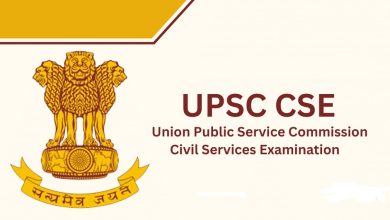A Step By Step Guidance on How To Get Your First Job
In this post, we'll go over why getting your first job is crucial, how to go about getting one, and eight practical tips. Read the entire blog to know each tactic in detail.

Are you done with your UG Courses? Are you in search of your first job? Well, A great experience is landing your first job. Your professional path may be permanently impacted by the role you chose, which might make you a more appealing candidate for opportunities in the future. Setting goals and doing extensive study are necessary while looking for your first job.
In this post, we’ll go over why getting your first job is crucial, how to go about getting one, and eight practical tips. Read the entire blog to know each tactic in detail.
Know From Where to Start Your First Job
Take into account your existing relationships when looking for jobs. Consider the friends or relatives you have who could be willing to recommend you for employment with a small business or another local firm. Consider the talents you may have gained via volunteer work, community service, or membership in a civic group. Although you may not have been paid for these positions, the experience you gained there probably helped you land a job with the organisation. Think about your own hobbies as well. For instance, start at your neighbourhood theater if you want to work in the film industry. Look for a job in a nearby restaurant if you’re interested in the culinary arts. Finding a job that is somewhat aligned with your professional objectives or may put you on the right road is extremely doable.
Expert Tips to Get Your First Job
The optimal procedure for landing your first job is outlined in the sections below:
Set realistic goals
Jobs with higher salaries frequently call for more education and experience. Consider starting your career with positions in fast food, sales, retail, or other entry-level industries. Due to the high demand for these professions among teens and young adults, they are frequently competitive. However, there are many options for you because these places of employment virtually always have openings.
Join a peer group
Networking is always advantageous, whether you are just starting your career or are close to the halfway mark. Inform your loved ones, close acquaintances, and classmates that you are looking for work right now. Friends or other students may be able to recommend you at a neighbourhood eatery or have links to family-run companies. Your chances of getting the job greatly enhance if you feel a connection to it.
Think about getting a job for the experience
Although it might not be precisely what you desire, your first job provides you significant experience that you can utilise in the future. If you work in retail, for instance, you may develop in-demand customer service abilities and get exposed to a wide range of circumstances. Every one offers different opportunities for you to either pick up new abilities or hone existing ones. You could study foundations of business like inventory control or food safety in a restaurant setting. Since many restaurants prefer to promote a server to kitchen staff rather than recruit a stranger, it may even result in an advanced position.
Publish a resume
Having a CV to offer potential employers is the greatest method to market yourself. Although you might not have much professional experience to mention on your CV, take into account the talents you have acquired elsewhere. You may mention your highly developed verbal communication abilities, for instance, if you’re taking and doing well in a public speaking course. Consider volunteer opportunities as well, since they offer an equivalent experience to that of a paid career. For instance, if you volunteered at a soup kitchen, mention that in your CV along with your expertise in food preparation, customer service, and other areas.
Look for a job
While networking is excellent for establishing business relationships, it must be combined with active job searching. On your computer and smartphone, there are a tonne of resources and programmes that might be helpful. Some just concentrate on finding a job, while others also incorporate networking and social media tools. Utilize employment boards to find the positions you want in your neighbourhood. You may even create a professional networking profile online and begin showing some of your abilities.
Make yourself interview-ready
The time to get ready comes after you choose a job, apply, and get called in for an interview. Examine the job description and the provided information. Take note of any specific qualities or abilities they want in candidates. Find out the company’s history, goals, and ideals by doing some research. Look them up on networking sites to find out who could be interviewing you. Explore their interests to get to know them better. This knowledge not only benefits you during an interview but also enables you to query the sources of the information.
The majority of interviewers like candidates who participate and demonstrate that they did their research on the company before the interview.
Dress professionally
The clothing you wear are frequently the first thing an interviewer observes about you. Your appearance conveys information about who you are and what you hope to achieve during the interview. For instance, it can appear that you aren’t taking the interview seriously if you show up to an office interview in a T-shirt and jeans. Think about the position you apply for and the attire that staff members often don. Try wearing something that is a notch beyond what you would often wear when getting ready for an interview. If the position requires business casual clothes, for instance, dress in business formal for the interview.
After the interview, follow up
Although it’s not always necessary, following up after an interview might help you get a better job. You should express your gratitude and appreciation for the chance to interview with them in an email. Thank you for your time, and best of luck in your search for the ideal candidate. This demonstrates your genuine concern for the organisation and the position, which will persuade them to give you the job. Instead of nothing at all, give them another incentive to hire you.
Are you done with your UG Courses? Are you in search of your first job? Well, A great experience is landing your first job. Your professional path may be permanently impacted by the role you chose, which might make you a more appealing candidate for opportunities in the future. Setting goals and doing extensive study are necessary while looking for your first job.
In this post, we’ll go over why getting your first job is crucial, how to go about getting one, and eight practical tips. Read the entire blog to know each tactic in detail.
Know From Where to Start Your First Job
Take into account your existing relationships when looking for jobs. Consider the friends or relatives you have who could be willing to recommend you for employment with a small business or another local firm. Consider the talents you may have gained via volunteer work, community service, or membership in a civic group. Although you may not have been paid for these positions, the experience you gained there probably helped you land a job with the organisation. Think about your own hobbies as well. For instance, start at your neighbourhood theater if you want to work in the film industry. Look for a job in a nearby restaurant if you’re interested in the culinary arts. Finding a job that is somewhat aligned with your professional objectives or may put you on the right road is extremely doable.
Expert Tips to Get Your First Job
The optimal procedure for landing your first job is outlined in the sections below:
Set realistic goals
Jobs with higher salaries frequently call for more education and experience. Consider starting your career with positions in fast food, sales, retail, or other entry-level industries. Due to the high demand for these professions among teens and young adults, they are frequently competitive. However, there are many options for you because these places of employment virtually always have openings.
Join a peer group
Networking is always advantageous, whether you are just starting your career or are close to the halfway mark. Inform your loved ones, close acquaintances, and classmates that you are looking for work right now. Friends or other students may be able to recommend you at a neighbourhood eatery or have links to family-run companies. Your chances of getting the job greatly enhance if you feel a connection to it.
Think about getting a job for the experience
Although it might not be precisely what you desire, your first job provides you significant experience that you can utilise in the future. If you work in retail, for instance, you may develop in-demand customer service abilities and get exposed to a wide range of circumstances. Every one offers different opportunities for you to either pick up new abilities or hone existing ones. You could study foundations of business like inventory control or food safety in a restaurant setting. Since many restaurants prefer to promote a server to kitchen staff rather than recruit a stranger, it may even result in an advanced position.
Publish a resume
Having a CV to offer potential employers is the greatest method to market yourself. Although you might not have much professional experience to mention on your CV, take into account the talents you have acquired elsewhere. You may mention your highly developed verbal communication abilities, for instance, if you’re taking and doing well in a public speaking course. Consider volunteer opportunities as well, since they offer an equivalent experience to that of a paid career. For instance, if you volunteered at a soup kitchen, mention that in your CV along with your expertise in food preparation, customer service, and other areas.
Look for a job
While networking is excellent for establishing business relationships, it must be combined with active job searching. On your computer and smartphone, there are a tonne of resources and programmes that might be helpful. Some just concentrate on finding a job, while others also incorporate networking and social media tools. Utilize employment boards to find the positions you want in your neighbourhood. You may even create a professional networking profile online and begin showing some of your abilities.
Make yourself interview-ready
The time to get ready comes after you choose a job, apply, and get called in for an interview. Examine the job description and the provided information. Take note of any specific qualities or abilities they want in candidates. Find out the company’s history, goals, and ideals by doing some research. Look them up on networking sites to find out who could be interviewing you. Explore their interests to get to know them better. This knowledge not only benefits you during an interview but also enables you to query the sources of the information.
The majority of interviewers like candidates who participate and demonstrate that they did their research on the company before the interview.
Dress professionally
The clothing you wear are frequently the first thing an interviewer observes about you. Your appearance conveys information about who you are and what you hope to achieve during the interview. For instance, it can appear that you aren’t taking the interview seriously if you show up to an office interview in a T-shirt and jeans. Think about the position you apply for and the attire that staff members often don. Try wearing something that is a notch beyond what you would often wear when getting ready for an interview. If the position requires business casual clothes, for instance, dress in business formal for the interview.
After the interview, follow up
Although it’s not always necessary, following up after an interview might help you get a better job. You should express your gratitude and appreciation for the chance to interview with them in an email. Thank you for your time, and best of luck in your search for the ideal candidate. This demonstrates your genuine concern for the organisation and the position, which will persuade them to give you the job. Instead of nothing at all, give them another incentive to hire you.
Also Read: World Mental Health Day 2022: Five strategies for students to combat anxiety brought on by exams





